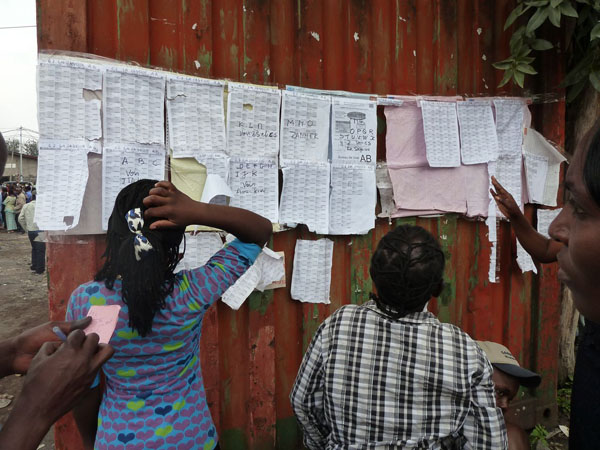
This Thursday and Friday in The Hague, the International Contact Group on the Great Lakes Region will meet again. Since the early 2000s, the contact group, a body that consists of representatives from the United States, the United Kingdom, France, Belgium, the European Union, and the United Nations, has met on a quarterly basis to focus on political, diplomatic, security, and development issues in the Great Lakes region of Africa.
The Enough Project presented the contact group with several key policy recommendations in the run up to their February 2012 meeting in Washington, D.C. In advance of this week’s meeting in the Netherlands, Enough has drafted another set of proposals related to four of the contact group’s urgent subject areas: security reform and civilian protection in eastern Congo, irregularities in the Congolese political process, continued reform in the minerals sector, and armed groups and regional dynamics, particularly with regard to the Lord’s Resistance Army, or LRA.
The new report, “At the Hague: Great Lakes Contact Group Discusses Justice and Accountability” by Enough’s Associate Director of Research Aaron Hall and Policy Analyst Ashley Benner, reflects on significant changes in the region since the group’s last meeting and proposes key steps for the contact group to adopt to promote peace, development, security, and accountability in the Great Lakes.
Enough’s policy recommendations for the contact group are as follows:
Security in Eastern Congo
- Support and pressure the government of Congo to arrest Bosco Ntaganda and his top commanders.
- Press the government of Rwanda to support the arrest of Ntaganda and to refuse him and his fellow rebels safe haven.
- Use diplomatic and economic leverage to push Rwanda and Congo to a durable peace, including eliminating Rwandan-linked military structures in eastern Congo, resolution of refugee right of return issues, and the dismantling of the Hutu-based FDLR rebel group.
- Pressure the Congolese government to implement security sector reform.
- Assert to the governments of Congo and Rwanda that Bosco Ntaganda is bad for a stable and legitimate minerals business.
Continued Electoral Irregularities and Provincial Elections
- Immediately call for the resignation and reconstitution of the Congolese National Electoral Commission, or CENI, into a more equitable and representative body.
- Enact strong consequences and accountability measure for electoral fraud and manipulation by the current government, including but not limited to aid reconfiguration, security assistance, individual sanctions, and travel restrictions.
- Coordinate statements that strongly and publicly condemn all state-led efforts to suppress citizens’ fundamental rights and freedoms.
Conflict Minerals
- Work with the U.S. government to use the burgeoning Public Private Alliance, or PPA, to begin a multilateral process for developing an internationally agreed upon certification scheme for Congo’s minerals.
- Support the establishment of a regional monitoring mechanism to verify whether mines and traders are conflict-free.
Armed Groups and Regional Dynamics, including the LRA
- Engage with governments in and outside the region as well as the African Union to quickly secure a sufficient number of capable troops for the pursuit of the LRA and protection of civilians.
- Provide enhanced intelligence and transport capabilities vital to enabling the troops to locate key LRA commanders, analyze LRA activity, identify threats to civilians, and act quickly on information.
- Maximize opportunities to encourage LRA commanders and rank-and-file fighters to leave the group, in conjunction with ongoing military operations.
Photo: Voters check names on a registration list in Congo's election last November (Enough / Sarah Zingg Wimmer)

